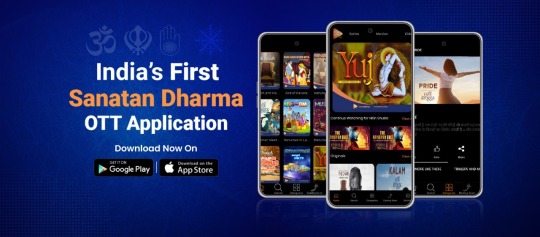#indian scriptures
Explore tagged Tumblr posts
Text
Time calculation in The Ling Mahapuran
Old Indian scriptures and literature are little explored. Majority of the people who follow Hinduism barely get in to the depth of it. Apart from religious values, it contains very rich information which help up to get an idea about the advancement of the civilization back then. If you open up any of the book and start reading, at the first glance it would appear a religious text. As you continue…
#ancient hindu scriptures#Ancient Knowledge System#Brahma#Exploring Hindu Puranas#Gurukul Education System#Hindu Cosmology#Hindu Science and Astronomy#Hindu Scriptural Insights#Hindu Time Calculation#Hindusim#Indian Literature#Indian Religious Texts#Indian Scriptures#Indus valley civilization#Puranas#Purans#Sacred Hindu Texts#Spiritual Dimensions in Hinduism#Spiritual Wisdom#The Ling Mahapuran#Time calculation in Hindusim#Vedas and Puranas#Vedic India#Vedic Knowledge of Time#Vedic Science#Vedic Teachings#Vedic times#Vishnu#Yuga
1 note
·
View note
Text
1 note
·
View note
Text
it's so sad to me that sexuality and gender were so fluid and pretty socially accepted to be fluid in most societies around the world until colonization and christian missionaries showed up and rewired people to be homophobic
#so many homophobic indian people but sexuality and gender#were literally so fluid pre colonization#we have trans and gay people in our scriptures like don't#be homophobic please aunty#and don't get me started#on the trumpies and#all of them#fluidity in sexuality and gender is so much#more natural than people wanna believe#lgbtq#thoughts#random#desi queer#dream's things
15 notes
·
View notes
Text
"Nothing can harm you as much as your own thoughts unguarded"

Siddhartha Gautama, most commonly referred to as the Buddha, was a wandering ascetic and religious teacher who lived in South Asia, during the 6th or 5th century BCE and founded Buddhism.
Founder of Buddhism: Siddhartha Gautama, also known as the Buddha, founded Buddhism, one of the world's major religions, based on his teachings about overcoming suffering and achieving enlightenment.
Born as a Prince: He was born in Lumbini (modern-day Nepal) as a prince of the Shakya clan around the 5th to 6th century BCE, shielded from the hardships of the world.
The Four Sights: At age 29, he left his palace and encountered "The Four Sights"—an old man, a sick man, a corpse, and a wandering ascetic—which inspired him to seek answers to life's suffering.
Attained Enlightenment: After years of ascetic practices, he meditated under the Bodhi tree in Bodh Gaya and achieved enlightenment, becoming "the Buddha," or "the Awakened One.
"Teachings of the Middle Way: Buddha advocated the "Middle Way," avoiding extremes of indulgence and self-denial, and shared the Four Noble Truths and the Eightfold Path as the foundation of his teachings.
#Buddhism#Enlightenment#Bodhi Tree#Four Noble Truths#Eightfold Path#Middle Way#Meditation#Asceticism#Dharma#Nirvana#Shakya Clan#Lumbini#Bodh Gaya#Four Sights#Indian Philosophy#Spiritual Teacher#Karma#Sangha#Buddhist Scriptures#Siddhartha
5 notes
·
View notes
Text
Understanding Devotional Worship: A Path to Spiritual Fulfillment
Devotional worship is a profound practice that has been a part of human culture for centuries. It is a way for individuals to connect deeply with the divine, expressing their love, reverence, and faith. Whether you are new to this practice or seeking to deepen your understanding, this guide will provide insights into the essence of devotional worship and how platforms like omtvlive can enhance your spiritual journey.

What is Devotional Worship?
Devotional worship refers to acts of devotion directed towards a deity or higher power. These acts can include prayer, singing hymns, chanting mantras, meditating, and performing rituals. The purpose of devotional worship is to express love and gratitude to the divine, seek guidance, and find spiritual solace.
Benefits of Devotional Worship
Inner Peace: Engaging in devotional worship helps calm the mind and bring inner peace. It provides a break from daily stresses and allows individuals to focus on the divine presence.
Spiritual Growth: Regular practice fosters spiritual growth. It deepens one's faith, enhances understanding of spiritual principles, and strengthens the connection with the divine.
Emotional Well-Being: Devotional worship can be a source of comfort during challenging times. It helps in coping with emotions like fear, anxiety, and sadness by providing a sense of hope and reassurance.
Community Connection: Participating in devotional worship within a community can create a sense of belonging and support. It brings people together in a shared expression of faith and devotion.
Forms of Devotional Worship
Devotional worship can take many forms, each with its own unique practices and traditions. Here are some common forms:
Prayer: A fundamental aspect of devotional worship, prayer involves communicating with the divine. It can be a request for help, an expression of gratitude, or simply a way to feel closer to the higher power.
Chanting and Singing: Chanting mantras or singing hymns and bhajans are powerful ways to engage in devotional worship. The repetitive nature of chanting helps focus the mind and create a meditative state.
Meditation: Meditation is a silent form of devotional worship where individuals sit quietly, focus on the divine, and cultivate a sense of inner stillness and connection.
Rituals and Offerings: Performing rituals and making offerings are traditional practices in many religions. These acts symbolize devotion and reverence towards the deity.
Pilgrimages: Traveling to sacred sites and participating in religious festivals are also forms of devotional worship. These journeys often provide a deep sense of spiritual renewal.
Enhancing Devotional Worship with Omtvlive
In today’s digital age, accessing resources for devotional worship has become easier than ever. Platforms like omtvlive play a crucial role in bringing devotional content to people worldwide. Here’s how omtvlive can enhance your devotional worship experience:
Live Streaming: Omtvlive offers live streaming of religious ceremonies, prayers, and spiritual discourses. This allows you to participate in devotional worship from the comfort of your home, especially if you cannot visit a place of worship.
On-Demand Content: The platform provides a wide range of on-demand content, including recorded prayers, bhajans, and spiritual talks. You can access these resources anytime, making it convenient to incorporate devotional worship into your daily routine.
Community Engagement: Omtvlive fosters a sense of community by connecting viewers with like-minded individuals. You can participate in live chats, discussions, and virtual prayer sessions, creating a shared space for devotion and support.
Educational Resources: The platform offers educational content that helps deepen your understanding of various aspects of devotional worship. This can include explanations of rituals, the significance of festivals, and teachings from spiritual leaders.
Diverse Practices: Omtvlive caters to a wide range of religious and spiritual traditions. This diversity allows you to explore different forms of devotional worship and find what resonates most with your spiritual path.
Tips for Deepening Your Devotional Worship
If you want to deepen your devotional worship, consider these tips:
Consistency: Make devotional worship a regular part of your routine. Consistent practice helps cultivate a stronger connection with the divine.
Sincerity: Approach devotional worship with sincerity and an open heart. Genuine devotion enhances the spiritual experience.
Learn and Explore: Use platforms like omtvlive to learn about different practices and traditions. Exploring various forms of devotional worship can enrich your spiritual journey.
Create a Sacred Space: Designate a quiet, clean space in your home for devotional worship. This can help you focus and create a peaceful environment for your practice.
Connect with Others: Engage with your spiritual community, whether online through omtvlive or in person. Sharing your experiences and learning from others can be incredibly enriching.
Conclusion
Devotional worship is a beautiful and meaningful way to connect with the divine and nurture your spiritual growth. It offers numerous benefits, from inner peace to a stronger sense of community. Platforms like omtvlive make it easier than ever to access devotional content and enhance your practice. By incorporating devotional worship into your daily life and exploring the resources available through omtvlive, you can embark on a fulfilling spiritual journey filled with love, devotion, and enlightenment.
#vedic philosophy#classical hinduism#hindu philosophy#hindu religion philosophy#hindu vedanta#jnana yoga#advaita vedanta philosophy#advaita vedanta in hindi#vaishnava tradition#jain religion#tantric traditions#vedic religion#devotional worship#modern hinduism#vedic scriptures#spiritual realization#dharmic religions#indian religions
2 notes
·
View notes
Text

#aesthetic#beautiful#mandala#mandala art#indian#new year#bible verse#bible#bible scripture#biblical scripture#jesus christ#christianity
2 notes
·
View notes
Text

#courage
#control of sense
#purity
#intellect
#controls of organs
#patience
#non-stealing
#truthfulness
#knowledge
#free from anger
2 notes
·
View notes
Text

Book cover of "Shastra Vidya: The Ancient Indian Martial Art of the Hindu Kshatriyas" ⚔️ 🏹 This book uses textual evidence from a variety of ancient Indian scriptures, treatises and epics, such as the Mahabharat, Ramayan, Shukraniti, Dhanurved Samhit, Nitiprakashik, Agni Puran, etc. Also illustrated. It details the history of Shastar Vidya ('weapons science'), the warrior traditions of the Kshatriyas, battle mantras, how the Kshatriyas used their traditional weapons such as the sword, mace, vajra, bhindipal (throwing club), trident, spear, bladed discus, etc. It's the first book of its kind.
#warfare#battle#indian#indian martial arts#martial arts#history#tactics#strategy#illustrated#kshatriya#combat#sword#trident#mace#texts#scriptures#books#ramayana#mahabharata#rig veda#shiva#hindu#hinduism#vedic#vajra#dhanurveda#harjit singh#archery
4 notes
·
View notes
Text
The Indian scriptures way! with Manasi Ekkundi
#podcast#india#indian#scriptures#science#research#experiments#yourstoryistheway#weekend#listen#Spotify
0 notes
Text
Wisdom of Ancient Indian Education: The 8 Limbs of Yoga and Beyond
Since times before the antiquities, Indian education system has been very robust. One of the core objective was to shape the individual and the society with highest virtues. How an individual should be is mentioned in various scriptures like Ved, Puran, Upanishad and others. In present times, one may consider these texts as purely religious scriptures. It is a common belief of most of the people,…

View On WordPress
#Ancient Civilizations#ancient hindu scriptures#Ancient India#ancient indian science#Ancient Knowledge#Ancient Knowledge System#Ancient texts#cultural heritage#Culture#Exploring Hindu Puranas#Hindu civilization#Hindu Scriptural Insights#Hindusim#India&039;s heritage#Indian education system#Indian Religious Texts#Lost Indian Knowledge#qualityoflife#Rediscovering Indian culture#Sacred Hindu Texts#Spiritual Wisdom#Yam&Niyam#yoga#yogaphilosophy
0 notes
Text
Ramayana No. 10: Narada: The Celestial Sage and Divine Messenger of the Ramayana
As I continue my journey through the Ramayana, I’ve chosen to explore this epic using multiple versions: the abridged Valmiki translation, the comprehensive Gita Press edition, and the detailed Debroy translation. This approach allows me to compare different interpretations and uncover nuances that might otherwise go unnoticed. For those interested in exploring these different versions, both the…

View On WordPress
#ancient scriptures#Bhakti#comparative religion#comparative study#Dharma#divine messenger#Divine Wisdom#epic literature#Gita Press#Hindu epics#Hindu mythology#Hindu sages#Hindu texts#Hindu tradition#Indian literature#Indian spirituality#Mythology#Narada#Narada Bhakti Sutra#Ramayana#religious studies#righteous living#Sacred texts#sages#spiritual growth#spiritual guide#Spiritual teachings#Valmiki#Vedic wisdom
0 notes
Text
Understanding Classical Hinduism: A Journey Through Ancient Beliefs
Classical Hinduism is one of the oldest and most diverse religious traditions in the world. It encompasses a rich tapestry of beliefs, practices, and rituals that have evolved over thousands of years. This blog will guide you through the essential aspects of Classical Hinduism, shedding light on its core principles, major texts, and how it continues to influence people today. Along the way, we'll also touch on a resource called OMTVLive, which provides insightful content related to this ancient religion.

What is Classical Hinduism?
Classical Hinduism refers to the set of religious practices and philosophies that developed in ancient India. It is characterized by its deep spiritual teachings, extensive rituals, and a vast array of deities and myths. Unlike many other religions, Classical Hinduism does not have a single founder or a central text. Instead, it is a collection of diverse beliefs that have coalesced over centuries.
Major Texts of Classical Hinduism
The foundation of Classical Hinduism lies in its sacred texts, which are divided into two main categories: Shruti and Smriti. The Shruti texts, which include the Vedas and the Upanishads, are considered the most authoritative. They consist of hymns, prayers, and philosophical discussions. On the other hand, the Smriti texts are more accessible and include the epics like the Mahabharata and Ramayana, as well as the Puranas.
For those interested in exploring these texts further, resources like OMTVLive offer detailed explanations and analyses. OMTVLive provides content that delves into the meanings of these ancient scriptures and how they relate to contemporary life.
Key Beliefs of Classical Hinduism
Dharma: One of the core concepts in Classical Hinduism is Dharma, which refers to the moral order and duties that one must follow. This concept helps guide individuals in making ethical decisions and living a righteous life.
Karma: Another important belief is Karma, the principle of cause and effect. According to this belief, every action has consequences, and one's past actions influence their future experiences.
Moksha: The ultimate goal in Classical Hinduism is Moksha, or liberation from the cycle of rebirth (samsara). Achieving Moksha means attaining a state of eternal peace and unity with the divine.
Rituals and Practices
Classical Hinduism is known for its elaborate rituals and ceremonies. These rituals vary widely but often involve offerings to deities, chanting of mantras, and participation in festivals. Temples play a significant role in these practices, serving as places where individuals can worship and seek guidance.
OMTVLive offers a range of videos and articles that showcase various rituals and festivals in Classical Hinduism. These resources provide a vivid depiction of how these ancient practices are performed and their significance in the daily lives of practitioners.
Deities and Mythology
The pantheon of deities in Classical Hinduism is vast and includes gods and goddesses like Brahma, Vishnu, Shiva, Lakshmi, and Saraswati. Each deity represents different aspects of life and the universe, and devotees often worship specific deities based on their personal needs and goals.
The mythology surrounding these deities is rich and complex, with numerous stories that convey moral and spiritual lessons. OMTVLive is a valuable resource for those who wish to learn more about these myths and their meanings. The platform provides detailed explanations of various stories and their relevance to Classical Hinduism.
Modern Influence and Practice
Classical Hinduism is not just a historical tradition; it continues to influence millions of people around the world today. In modern India, Classical Hinduism shapes daily life, cultural practices, and national festivals. It also impacts the global Hindu diaspora, which maintains and adapts these ancient traditions in new contexts.
For a contemporary perspective on Classical Hinduism, OMTVLive offers modern interpretations and discussions that help bridge ancient practices with current lifestyles. This platform provides valuable insights into how Classical Hinduism is practiced and understood in today's world.
Conclusion
Classical Hinduism is a profound and intricate tradition that has shaped the spiritual and cultural landscape of India for millennia. Its teachings on Dharma, Karma, and Moksha offer valuable guidance for living a meaningful life. Through its sacred texts, rituals, and deities, Classical Hinduism provides a rich tapestry of beliefs that continue to resonate with people today.
For those interested in exploring Classical Hinduism further, OMTVLive serves as an excellent resource. It offers in-depth content that helps illuminate the complexities of this ancient religion and its relevance in the modern world. Whether you're looking to understand ancient texts, explore rituals, or learn about deities, OMTVLive provides a wealth of information to enhance your journey into Classical Hinduism.
By delving into the teachings and practices of Classical Hinduism, we gain a deeper appreciation for its enduring legacy and its role in shaping human spirituality and culture across the ages.
#vedic philosophy#classical hinduism#hindu philosophy#hindu religion philosophy#hindu vedanta#jnana yoga#advaita vedanta philosophy#advaita vedanta in hindi#vaishnava tradition#jain religion#tantric traditions#vedic religion#devotional worship#modern hinduism#vedic scriptures#spiritual realization#dharmic religions#indian religions
0 notes
Text
"Tune as the Sitar neither low nor high. And we will dance away the hearts of men"

Siddhartha Gautama, most commonly referred to as the Buddha, was a wandering ascetic and religious teacher who lived in South Asia, during the 6th or 5th century BCE and founded Buddhism.
Founder of Buddhism: Siddhartha Gautama, also known as the Buddha, founded Buddhism, one of the world's major religions, based on his teachings about overcoming suffering and achieving enlightenment.
Born as a Prince: He was born in Lumbini (modern-day Nepal) as a prince of the Shakya clan around the 5th to 6th century BCE, shielded from the hardships of the world.
The Four Sights: At age 29, he left his palace and encountered "The Four Sights"—an old man, a sick man, a corpse, and a wandering ascetic—which inspired him to seek answers to life's suffering.
Attained Enlightenment: After years of ascetic practices, he meditated under the Bodhi tree in Bodh Gaya and achieved enlightenment, becoming "the Buddha," or "the Awakened One.
"Teachings of the Middle Way: Buddha advocated the "Middle Way," avoiding extremes of indulgence and self-denial, and shared the Four Noble Truths and the Eightfold Path as the foundation of his teachings.
#Buddhism#Enlightenment#Bodhi Tree#Four Noble Truths#Eightfold Path#Middle Way#Meditation#Asceticism#Dharma#Nirvana#Shakya Clan#Lumbini#Bodh Gaya#Four Sights#Indian Philosophy#Spiritual Teacher#Karma#Sangha#Buddhist Scriptures#Siddhartha
4 notes
·
View notes
Text
श्री हनुमान चालीसा (Shree Hanuman Chalisa)
श्री हनुमान चालीसा लिरिक्स – हिंदी में दोहा श्री गुरु च��न सरोज रज, निज मन मुकुरु सुधारि। बरनऊँ रघुबर बिमल जसु, जो दायक फल चारि।।1।। बुद्धिहीन तनु जानिके, सुमिरौं पवन-कुमार। बल बुद्धि विद्या देहु मोहिं, हरहु कलेस विकार।।2।। चौपाई जय हनुमान ज्ञान गुण सागर। जय कपीस तिहुँ लोक उजागर।।1।। राम दूत अतुलित बलधामा। अंजनि-पुत्र पवनसुत नामा।।2।। महाबीर विक्रम बजरंगी। कुमति निवार सुमति के संगी।।3।। कंचन वरण…
#ancient scriptures#bhakti#chanting#devotional hymns#Hanuman Chalisa#Hanuman Chalisa meaning#Hindu devotional songs#Hindu prayers#hinduism#Indian culture#Lord Hanuman#Lord Rama#mantra#meditation#Ramayana#religious chants#religious texts#Sanskrit verses#spiritual benefits#spiritual growth#Tulsidas
1 note
·
View note
Text
10 Fascinating Short Stories from The Mahabharata (Volume 1)
Craving some epic stories? Dive into 10 surprising tales from the 1st volume of the Mahabharata! Betrayal, escapes & divine deals await! #Mahabharata
Credit: Thumbnail Image by Gita Press Gorakhpur, License: CC0 My Humble Mission The Mahabharata wasn’t just a bedtime story in my childhood – it was a symphony woven from my grandmother and mother’s voices. Short tales of epic battles and righteous heroes filled my early years, further fueled by the fantastical tales on the small screen. Fast forward to my techie life, and while chatting with…
0 notes
Text
Modern Hinduism: Embracing Tradition and Change with Omtvlive
Modern Hinduism is a vibrant and dynamic blend of ancient traditions and contemporary practices. As one of the world's oldest religions, Hinduism has evolved significantly over thousands of years, adapting to changes in society while maintaining its core principles. In this blog, we will explore the essence of modern Hinduism, how it differs from traditional practices, and its relevance today. With insights from Omtvlive, we aim to provide a clear understanding of this fascinating subject.

What is Modern Hinduism?
Modern Hinduism refers to the way Hinduism is practiced and understood in the contemporary world. It is a religion that remains deeply rooted in its ancient scriptures and traditions but also embraces new ideas and practices. This adaptation allows Hinduism to stay relevant and meaningful in the lives of its followers amidst the rapid changes of the modern world.
Key Aspects of Modern Hinduism
Continued Reverence for Scriptures Despite the passage of time, the sacred texts of Hinduism, such as the Vedas, Upanishads, Bhagavad Gita, and Ramayana, continue to hold great importance. These texts provide spiritual guidance and moral teachings that are timeless. Modern Hindusm study these scriptures to understand the deeper meanings of life and the universe.
Flexibility in Practices One of the strengths of modern Hinduism is its flexibility. While traditional rituals and ceremonies remain important, many Hindus adapt these practices to fit their contemporary lifestyles. For example, daily prayers (puja) might be performed in simpler forms, and festival celebrations may incorporate modern elements while retaining their spiritual essence.
Focus on Personal Spirituality Modern Hinduism places a strong emphasis on personal spirituality and inner growth. Practices such as yoga, meditation, and mindfulness are widely embraced. These practices help individuals connect with their inner selves and achieve a sense of peace and balance in their busy lives. According to Omtvlive, this focus on personal spirituality is one of the key ways Hinduism remains relevant today.
Social and Ethical Concerns Modern Hinduism addresses contemporary social and ethical issues, emphasizing the importance of dharma (righteousness) in everyday life. This includes promoting environmental sustainability, social justice, and ethical behavior. Many Hindu organizations and leaders actively engage in humanitarian efforts, reflecting the religion’s enduring commitment to compassion and service.
The Role of Technology and Media
Technology and media have significantly influenced modern Hinduism. Platforms like Omtvlive play a crucial role in disseminating spiritual knowledge and connecting Hindus worldwide. Online resources, virtual temples, and social media communities have made it easier for people to access religious content, participate in rituals, and engage with spiritual leaders from the comfort of their homes.
The Global Spread of Hinduism
Modern Hinduism is not confined to India; it has a global presence. The Hindu diaspora has spread to various parts of the world, including North America, Europe, and Southeast Asia. This global spread has led to the blending of Hindu practices with local cultures, creating diverse expressions of the religion. Festivals like Diwali and Holi are celebrated with great enthusiasm worldwide, bringing together people from different backgrounds to appreciate Hindu culture.
Modern Hinduism and Interfaith Dialogue
In today’s interconnected world, interfaith dialogue is essential for promoting mutual understanding and harmony. Modern Hinduism actively participates in such dialogues, fostering respect and cooperation among different religious communities. This openness to other faiths is rooted in Hinduism’s inclusive philosophy, which acknowledges multiple paths to the divine.
Challenges and Adaptations
While modern Hinduism has adapted well to contemporary times, it also faces challenges. The rapid pace of globalization and modernization can sometimes lead to a dilution of traditional values and practices. However, many Hindu leaders and scholars are working to address these challenges by finding ways to preserve the essence of the religion while embracing change.
Omtvlive highlights that education and awareness are key to maintaining the balance between tradition and modernity. By educating young Hindus about their rich cultural heritage and encouraging them to explore their spirituality, the continuity of Hinduism can be ensured for future generations.
The Future of Modern Hinduism
The future of modern Hinduism looks promising as it continues to evolve and adapt. With its emphasis on personal spirituality, ethical living, and social responsibility, Hinduism remains a guiding force for millions. The integration of technology and media will likely play an even greater role in the spread and practice of Hinduism, making it more accessible and inclusive.
According to Omtvlive, the future of modern Hinduism will be shaped by its ability to maintain its core values while embracing innovation and change. This adaptability will ensure that Hinduism remains a living, breathing tradition that speaks to the needs and aspirations of people in the modern world.
Conclusion
Modern Hinduism is a beautiful blend of ancient wisdom and contemporary relevance. It continues to guide its followers with timeless principles while adapting to the changes of modern life. With the help of platforms like Omtvlive, the teachings and practices of Hinduism are more accessible than ever, fostering a deeper understanding and connection among Hindus around the world.
By embracing both tradition and change, modern Hinduism offers a path that is both spiritually enriching and practically relevant, ensuring its enduring significance in an ever-evolving world.
#vedic philosophy#classical hinduism#hindu philosophy#hindu religion philosophy#hindu vedanta#jnana yoga#advaita vedanta philosophy#advaita vedanta in hindi#vaishnava tradition#jain religion#tantric traditions#vedic religion#devotional worship#modern hinduism#vedic scriptures#spiritual realization#dharmic religions#indian religions
0 notes